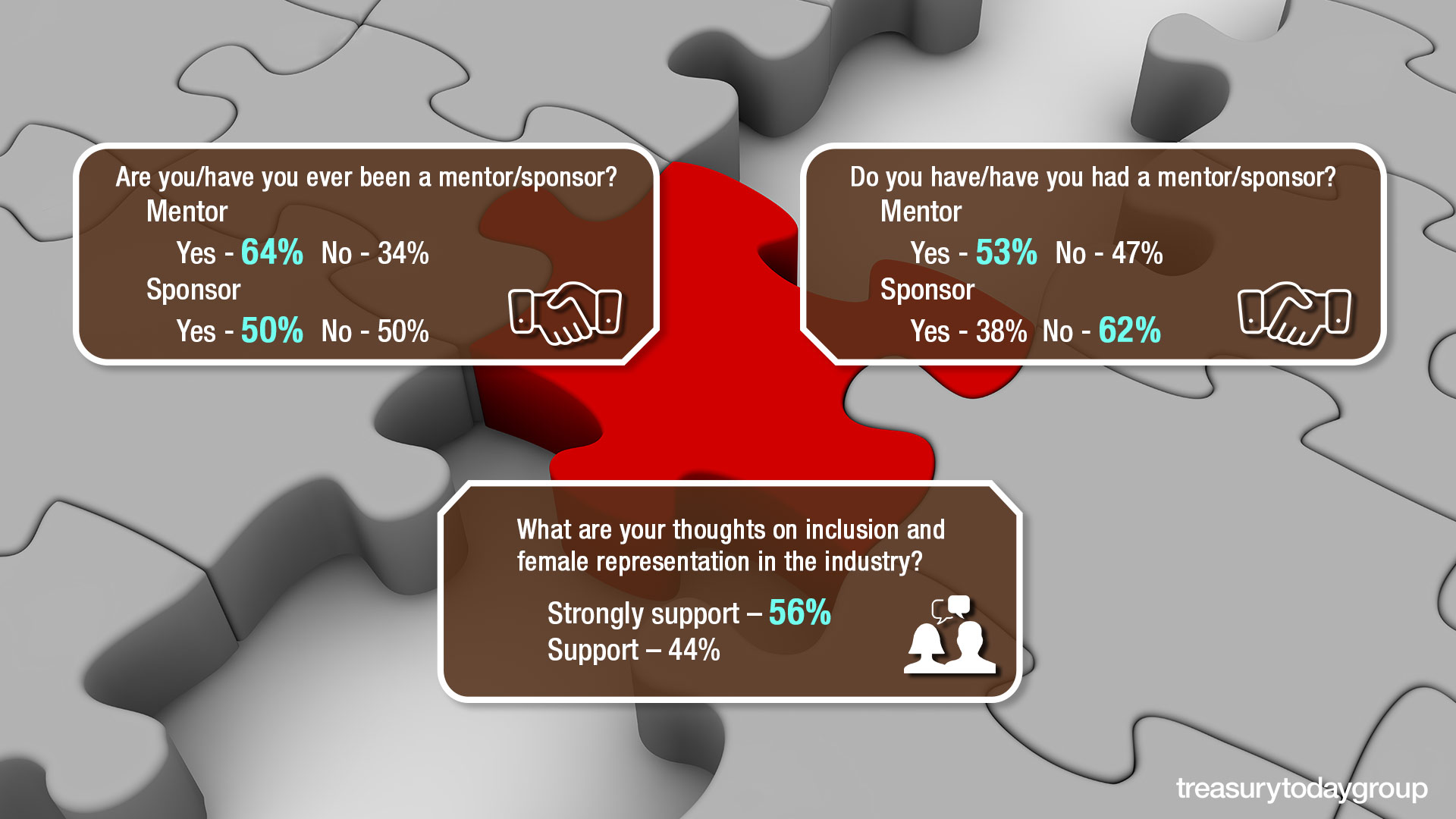During a virtual Leaders’ Workshop “Inclusion in Action” supported by J.P. Morgan, panellists discussed the importance of mentors and role models, tying inclusion and diversity progress to performance targets, and the importance of managing inclusion in real-time. Attendees also discussed how the pandemic and working from home threatens progress on inclusion and requires more from our managerial leaders.
Listen to the podcast

Giving back
When Rosanna Summerville, Manager Global Transaction Banking & Processes at Unilever joined the consumer goods company 25 years ago, diversity and inclusion weren’t really on the radar. “There was no awareness of this topic,” she recalled.
However, for the last ten years Unilever has been actively driving diversity and inclusion and has achieved gender parity in management roles across the company and within the finance function. Now the focus has turned to close any remaining gaps at senior executive levels too. “We are not there yet, but we will get there,” she enthused, noting how Unilever’s own action on diversity and inclusion mirrors diversity becoming more prevalent across corporate treasury in general.
Rosanna explained to delegates how the absence of women in treasury motivated her to speak on diversity platforms and become a role model for others. “I never imagined that I would do this,” she admitted. These sentiments were echoed by fellow panellist Alison Livesey, Managing Director, Wholesale Payments, EMEA at J.P. Morgan, who explained that despite a varied early career, she also often found herself the only woman in the room. “I struggled to find role models,” she said. Cue her ambition to also use her experience to boost diversity and encourage others. “Sponsorship has been key to my career progression, and I want to give back,” she said.
Inclusion and belonging
Although both panellists agreed diversity has improved, they said measuring progress and ensuring accountability around inclusion is more challenging. It is a focus for J.P. Morgan, which is currently working on how best to assess and measure inclusive leadership via promoting teamwork and fostering an open environment. Alison also spoke about the importance of making leaders accountable for reaching inclusion targets, suggesting inclusion needed to be tied to performance. “We must think about what inclusive leadership looks like and find a rigour to assessing it,” she said. “It has also got to run through the organisation. We have amazing inclusive leadership at the top, but we’ve got to make sure that it exists at every level. We used to talk about diversity, now we talk about diversity and inclusion.”
Ways to measure inclusion could include feedback and understanding why people decide to leave a company, and actively ensuring everyone’s voice is heard, she suggested. Regarding tying inclusion targets to performance, she said inclusion had to be pulled into regular performance appraisals rather than singled out at year-end: it needs managerial rigour in real-time. “It is incredibly important to us,” she said.
Advice to others
Offering key advice to other women working in treasury, Rosanna urged delegates to “try new things,” and grab opportunities such as working abroad. She advised on the importance of a “development plan” and seeking a mentor – something she missed out on. Finally, she espoused the benefits of participating and speaking on platforms that celebrate diversity.
However, panellists reflected on how the pandemic and enduring economic crisis also poses a threat to diversity and inclusion. For example, new employees working from home don’t have existing networks to fall back on. “We need to reach newer people to make sure they are supported,” said Alison. She also counselled on the importance of equitable exposure to senior managers, who should reach out to different people and ensure it is not always the usual faces who get an opportunity “to shine.” She also flagged that the ongoing crisis has left people increasingly tired and stressed, requiring leadership. “We must make sure we are alive to this and show compassionate leadership and emotional intelligence,” she said.
Alison also noted that inclusion and diversity within a company is not something that “one person can fix.” Rather, it demands broad-based cultural change. At Unilever – where Rosanna noted diversity and inclusion is passionately supported by top leadership including the CEO – some of the company-wide cultural focus has been on tackling unconscious bias and nurturing psychological safety whereby people feel safe to share their views and bring their authentic selves to work.
Public to private
Next, Simone Coultress, Treasury Manager, Johnson Matthey, recounted the challenges and lack of support she faced moving from a public sector management accounting role for a local authority to a private sector treasury role before joining Johnson Matthey, where she now manages the treasury back office. However, she noted that the public sector felt more diverse, recalling that her CFO was a Black woman who made her feel “if she worked hard enough, it was possible.” She also noted the strides Johnson Matthey is taking around diversity and inclusion focused on recruitment and career development of black employees, among other under-represented groups.
Simone also shared her personal belief that her career success has involved breaking free from the way she was raised, where she was always told to “keep her head down.” She added: “These aren’t the skills that are associated with leadership; you have to be loud and confident. These are the traits that are rightly, or wrongly, associated with leaders.”
She noted that a mentor would have helped her build confidence and perform in the workplace and urged delegates to take risks, make and thereby learn from mistakes and most importantly, speak up. “No one is going to tap you on the shoulder and say you are a leader. It doesn’t happen like that.”
Men on side
Royston Da Costa, Assistant Group Treasurer at Ferguson plc, agreed that diversity and inclusion has only become centre stage in recent years but that it is now firmly on the agenda.
“For all companies, success lies in making diversity an organisation-wide initiative,” he said. He also reiterated that creating true gender parity will require participation by both men and women, with the involvement of men in particular being crucial to generate progress. He urges other men to step up and become actively involved in promoting diversity.
His passion for diversity and inclusion is sparked as a father of two daughters; he wants to create a more equitable world in which they can thrive and achieve their full potential.
In his view, we need to be adept at seeing and hearing differences in order to reap the benefits of diversity (to achieve greater performance and innovation). Therefore, he has encouraged mentorship, support and networking.

Listen to the podcast